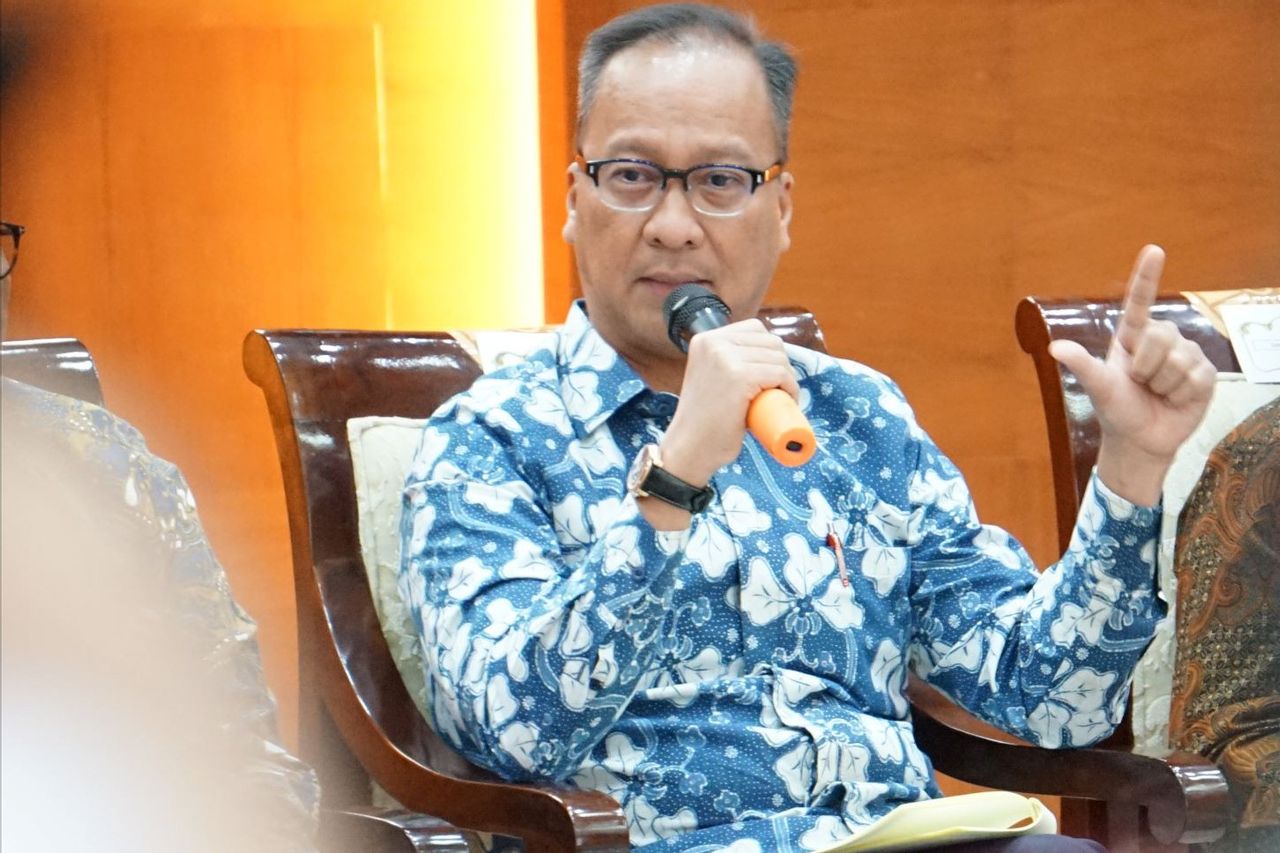Government Efforts To Boost The Manufacturing Industry

JAKARTA - The government has increasingly boosted the manufacturing industry as one of the motors driving the national economy. Various strategic steps have been taken to increase competitiveness and at the same time strengthen its structure.
"So it is not wrong if the government is increasingly driving the manufacturing industry as one of the driving forces for the national economy. The government is now focused on developing the manufacturing industry sector," said Industry Minister Agus Gumiwang Kartasasmita in Jakarta, Monday, January 6.
Minister of Industry Agus is optimistic that the performance of the manufacturing industry in 2020 will still grow positively, even in the midst of uncertain global conditions. "For the non-oil and gas processing industry GDP growth in 2019, we estimate it will be 4.48-4.60 percent," he said.
Meanwhile, in 2020, it is projected to reach 4.80-5.30 percent. The target for this increase is in line with the increasing productivity of a number of sectors through additional investment.
"We also continue to encourage the assurance of the availability of raw materials so that productivity is sustainable. This is an effort to create a conducive business climate, "he said.
The Minister of Industry added that the non-oil and gas processing industry's GDP contribution to total GDP in 2019 is estimated to be 17.58-17.70 percent. In 2020, this contribution is targeted to increase to 17.80-17.95 percent in line with the improving GDP growth of the non-oil and gas processing industry.
"So far, the industrial sector has played a strategic role because it has consistently made the largest contribution to the national economy. Moreover, industrial activity has a broad dual effect for increasing the added value of domestic raw materials, absorbing local labor, and earning foreign exchange from exports, "he explained.
Therefore, the government is aggressively attracting investment, especially for export-oriented industrial sectors, producing import substitution products, high technology-based, and labor-intensive sectors. In the January-September 2019 period, the investment value of the industrial sector exceeded IDR 147.3 trillion, with a cumulative value since 2015 of IDR 1,216.2 trillion.
"We project that the investment value at the end of 2019 will be recorded at IDR188.8 trillion-IDR204.6 trillion," he said. Meanwhile, in 2020, investment in the industrial sector is targeted to reach IDR 307 trillion-IDR 351 trillion.
"Of course, this needs to be supported by resolving investment constraints and certainty in doing business by trimming regulations through the Omnibus Law Bill, which is currently being discussed by the government," said Agus.
In line with the increase in investment in the industrial sector, the trend of employment is also increasing. This can be seen from the period 2015 to August 2019, the number of workers in the industrial sector has reached 18.93 million people. Meanwhile, in 2020, the number of workers in the industrial sector is estimated to be 19.59-19.66 million people.
"The industrial era 4.0, which brings changes to the increase in the digital-based economy, will be able to absorb many new workers, especially taking advantage of the demographic bonus that is being experienced by Indonesia until 2030," he explained.
In order to facilitate incoming investment in the country, the Government continues to prioritize industrial distribution outside Java, one of which is through the development of priority industrial areas.
In 2020-2024, 27 priority industrial areas are planned, namely 14 on Sumatra Island, six in Kalimantan, one in Madura, one in Java, three in Sulawesi and the Maluku Islands, one in Papua, and one in West Nusa Tenggara.
"The government is overseeing several major industrial sector investments from Taiwan and the United States, including CPC Corporation (Taiwan) in the petrochemical industry sector, LiteMax (Taiwan) in the electronics industry sector and Smart City, Taiwan Sugar Corp (Taiwan) in the sugar industry sector. and UNICAL (US) in the aerospace industry sector, "he said.
